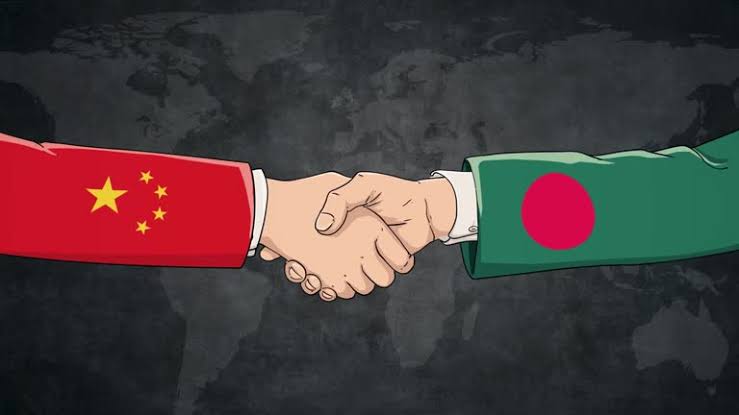
China Bangladesh Relationship
Dr. Muhammad Yunus, Chief Adviser of Bangladesh’s interim government, is currently on a four-day official visit to China, aiming to strengthen bilateral relations and explore avenues for collaboration between the two nations. This visit holds the potential to unlock numerous opportunities for Bangladesh, particularly in the realms of renewable energy, trade diversification, technological collaboration, and humanitarian support.
Addressing the Rohingya Crisis
The humanitarian situation involving over one million Rohingya refugees in Bangladesh remains a critical concern. Dr. Yunus sought continued political, financial, and humanitarian support from China to address this crisis. He expressed hope that China would play a pivotal role in facilitating a durable solution, including advocating for a ceasefire in Myanmar’s Rakhine state and ensuring the safe repatriation of refugees.
Teesta River Comprehensive Management Project
A significant focus of Dr. Yunus’s visit is the Teesta River Comprehensive Management Project. China has previously expressed interest in assisting with this initiative, aiming to address the challenges faced by communities along the Teesta River. Chinese Ambassador to Bangladesh, Yao Wen, emphasized China’s readiness to support the project, highlighting the hardships experienced by people living on the Teesta banks and expressing a desire for the project’s prompt commencement.
Re-engaging China in this project could provide technical and financial support, but it also requires careful navigation of regional dynamics, particularly concerning India’s interests in the river’s water-sharing arrangements.
Advocating for Solar Panel Manufacturing Relocation
Another key agenda of Dr. Yunus’s visit is to encourage Chinese solar panel manufacturers to establish production facilities in Bangladesh. This initiative aims to bolster Bangladesh’s green energy sector and diversify its export base. Dr. Yunus highlighted that China’s leading solar panel manufacturer, Longi, has expressed interest in setting up a factory in Bangladesh, which could significantly aid the country’s transition to a green economy.
Strengthening Economic and Trade Relations
During his meetings with Chinese officials, Dr. Yunus emphasized the importance of deepening economic cooperation between Bangladesh and China. He called for increased Chinese imports of Bangladeshi goods to balance trade and promote local industries. Discussions also covered technological transfer and enhanced collaboration in sectors such as disaster management, education, and agriculture. These efforts aim to foster a comprehensive partnership that benefits both nations.
Cultural and Educational Exchanges
Dr. Yunus’s visit also focuses on strengthening people-to-people connections between Bangladesh and China. He is scheduled to deliver a lecture at Peking University on March 29, aiming to foster mutual understanding and shared values between the two countries.
China’s Humanitarian Assistance
In a gesture of goodwill, the Chinese embassy donated $20,000 to Bangladesh’s Flood Relief Fund, and the Chinese Red Cross pledged an additional $100,000 in humanitarian aid for flood-affected communities in Bangladesh. These contributions underscore China’s commitment to supporting Bangladesh during times of need and highlight the strength of their bilateral relationship.
Implications for Regional Dynamics
Dr. Yunus’s visit to China comes at a time when regional alliances are shifting. Following political changes in Bangladesh and the subsequent reduction of medical visas issued by India to Bangladeshi citizens, China has stepped in to fill the void by offering medical visas and increasing investments in Bangladesh. This evolving dynamic suggests a recalibration of regional relationships, with China playing an increasingly influential role in South Asia.
Dr. Yunus’s visit to China represents a pivotal moment for Bangladesh, with the potential to open numerous doors in economic cooperation, renewable energy development, trade diversification, and humanitarian support. By fostering a multifaceted partnership with China, Bangladesh positions itself to achieve sustainable growth and enhance its standing on the global stage.
